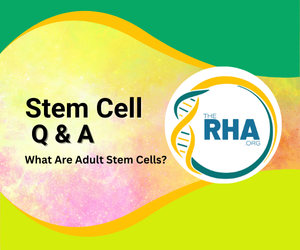Adult stem cells are undifferentiated cells found in various tissues throughout the body that have the potential to develop into different types of specialized cells. Adult stem cells are typically multipotent, meaning they are limited to differentiating into a smaller subset of cell types. These cells play a key role in repairing and maintaining the tissues in which they are found.
Adult stem cells are found in various tissues such as bone marrow, skin, and the lining of the gut, and they are responsible for replenishing cells lost due to normal wear and tear, injury, or disease. For example, hematopoietic stem cells in bone marrow produce red and white blood cells.
Because of their regenerative abilities, adult stem cells hold potential for various therapeutic applications, including the treatment of conditions like leukemia, autoimmune diseases, and injuries. However, their use in clinical therapies is still being explored, with many challenges around expanding these cells outside the body and ensuring their safety and effectiveness in treatments.
If you’re curious about adult stem cells, read more from the National Institutes of Health (NIH)
Stem Cell Q&A is a reoccurring series of questions and answers from regenerative health community forums across the web as well as submitted directly to TheRHA.org. Have a question? Feel free to email us at info@therha.org and we’ll do our best to provider an answer and /or resource for you.


